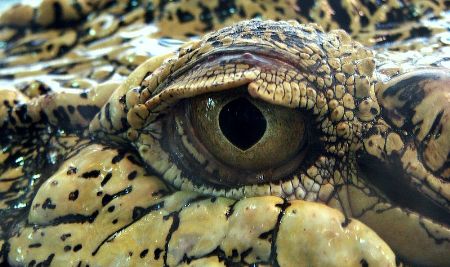by Larry
March, 2009Where's the Cut-Off Valve?My own personal reasons (maybe having to do with unexpressed emotions and concern that I might "blow up" if they were not kept suppressed) for having such a dream aside, I found it an interesting coincidence that a few days later I came across a seemingly related environmental piece. In the article, by Susan Q. Stranahan ("A Ticking Time Bomb in the Arctic?" in National Wildlife Magazine, Vol. 47, No. 2, pages 16, 18; February/March, 2009), the discussion centers around new research findings that suggest faster than anticipated warming in Arctic and Antarctic regions appears to be releasing methane, long prevented from escaping into the atmosphere by its being trapped in permafrost (on land) and in equivalent frozen areas under the Arctic and Antarctic Oceans. Once this release is well under way, there will be no means of our shutting it off. Indeed, it will continue to be released at a growing rate and might then have dramatic consequences. Methane is a greenhouse gas, just as is the carbon dioxide that is typically vented to the air as a waste by-product of transportation and industrial operations that use fossil fuels. However, methane is twenty times more efficient at trapping heat in the upper atmosphere than carbon dioxide, so a little goes a long way toward bringing about greater global warming.
 The researchers are not prepared to state categorically that methane release in our polar regions will bring about catastrophe if unchecked. Nonetheless, they have pointed out that, both on land and in the extensive shallow continental shelf areas, previously long frozen Arctic and Antarctic regions are warming faster than anywhere else on the planet and so are gradually thawing. Huge amounts of methane have been trapped in permafrost or continental shelf locales because, when the ocean was lower or the planet was warmer thousands of years ago, these expanses were rich in foliage and included vast grasslands, the vegetable matter from which became peat, highly productive of methane, most of it only prevented from getting into the atmosphere then by the subsequent extreme cold of these territories. It is estimated there is as much buried organic matter in the Siberian tundra alone to be equivalent to that in all the world's tropical rainforests. Once the trapped methane from other polar regions are added to the equation, it is clear that any significant release of the gas would increase the atmospheric methane to many times its current level. Researchers have found that since 2003, when there was little measurable methane escape from permaforst or continental shelf regions, Arctic/Antarctic methane release, from highly concentrated "methane chimneys" and other sources, has definitely begun to rise. It is speculated that some similar mechanism or system of fairly rapid methane escape is what resulted in an abrupt transformation 635 million years ago from one of our sphere's "global snowball" phases into one with an environment more conducive of highly varied and abundant life on land and in the seas. But if such a transformation is now underway again, this time it will not be from super-cold to relatively comfortable, but instead from relatively comfortable to super-hot. Scientists are trained to be conservative and cautious. They say that in another twenty years we likely will know if the increasing methane release being discussed is enough to cause us severe problems. By then, though, their findings may just confirm, too late to counter it, that rapid methane release will assure runaway global warming and a return to climate conditions not seen since there were crocodile-like giants roaming in what is now Colorado. |